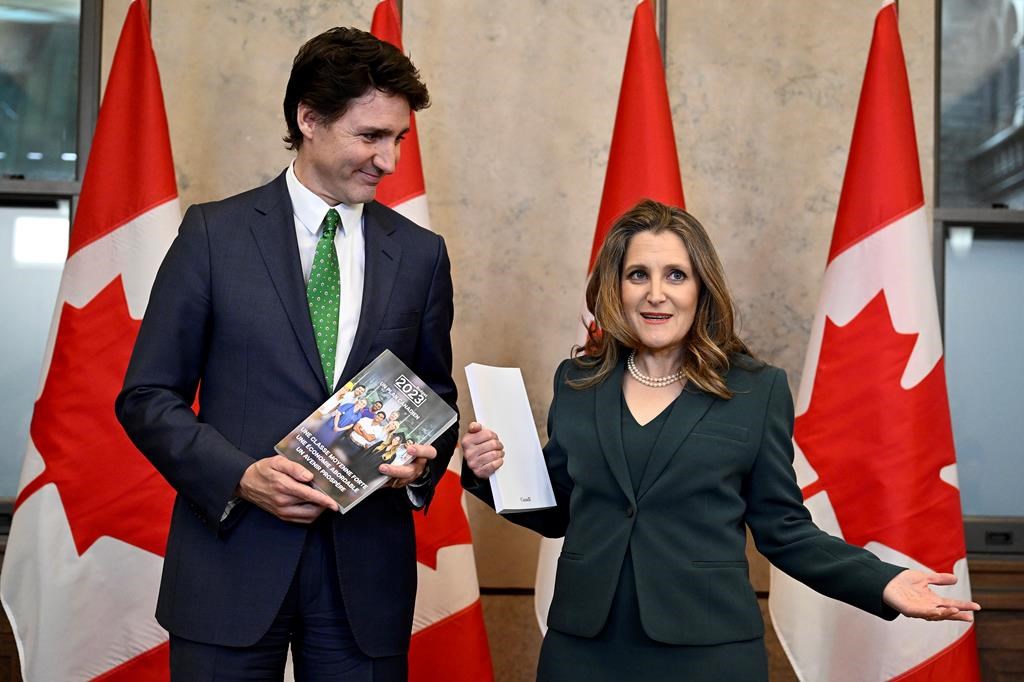B.C. government sets 3.5 per cent income tax on LNG, half of what was planned
Posted Oct 22, 2014 6:35 am.
This article is more than 5 years old.
VICTORIA – The British Columbia government climbed down from its proposed goal of a seven per cent income tax on liquefied natural gas, earning praise from the industry, but forcing the finance minister to admit an election promise to eliminate the debt will be up to 15 years behind schedule.
Mike De Jong said Tuesday the Liquefied Natural Gas Income Tax Act reflects the plan he announced in February’s budget, but LNG prices are declining and increasing construction costs prompted the government to reduce the preliminary tax rate to 3.5 per cent.
The minister said the lower tax rate is more attractive to potential investors.
“The market has changed,” said de Jong.
He suggested a massive LNG purchase agreement by China for Russian natural gas also influenced the tax structure. B.C. believes its major LNG customer will be China.
“Here we are in October with a comprehensive legislative package that will ensure everyone, the public, the shareholders of British Columbia, and the proponents themselves know what the rules of the game are going to be with respect to the LNG income tax,” de Jong said.
B.C.’s Liberal government has pinned much of its economic future on developing a home-grown LNG industry.
Premier Christy Clark has said LNG is a generational opportunity that could create 100,000 jobs and represents a trillion-dollar economic opportunity.
De Jong said there are currently 18 potential LNG projects in the works in B.C.
But he was forced to defend the potential returns of the tax structure, especially since the Liberals were re-elected in May 2013 on promises to eliminate the debt with money earned primarily with LNG tax dollars placed in a Prosperity Fund.
Government documents announcing the income tax made no mention of the Prosperity Fund.
“We set some targets,” he said. “Might it take longer, sure, the market’s changing, but it’s still very much in my mind an achievable goal. If it takes an extra 10 or 15 years to pay down to the extent we’d like, or eliminate our debt, I’ll take that. That’s, in my view, worth pursuing.”
The new tax starts in 2017 at a rate of 1.5 per cent and rises to 3.5 per cent, with another increase to five per cent in 2037, once the industry plants roots in the province, he said.
The tax also includes a corporate income-tax credit available to LNG companies that establish permanent bases in B.C. The credit, an attempt to attract new corporate income-tax revenue to B.C., could drop to eight per cent from 11 per cent for LNG companies, de Jong said.
The LNG Alliance, which represents seven major proponents, including Shell, Chevron, British Gas and Petronas, said the reduced income tax is a compromise that was necessary in a declining market.
Alliance spokesman David Keane said the 3.5 per cent tax provides investors with certainty and may drive final decisions, but he could not speak for individual companies.
“The government recognized that we are in a competitive industry and if we are going to achieve success and achieve a viable industry in B.C. then we have to work together, which means we both have to move,” he said.
Opposition New Democrat natural gas development critic Bruce Ralston said the Liberals have backed down considerably on their original tax plans. He said it could take a lifetime to pay down the debt on de Jong’s revised schedule.
“They backed down dramatically and we’ll see whether they backed down enough to suit the companies that are pressing them,” he said.
Last February, de Jong said the preliminary version of the LNG income tax would be 1.5 per cent at the start of production, and the second tier would rise to seven per cent once plants were running and capital costs were deducted. But he also indicated seven per cent was at the top of the tax range.
De Jong said one mid-sized LNG plant will pay about $800 million in taxes annually under the new rules, an amount equivalent to the taxes B.C.’s entire forest industry pays in one year. He said one plant, producing 12-million tonnes of LNG annually, will pay taxes of $8 to $9 billion over 10 years.
Environment Minister Mary Polak introduced emissions-control legislation Monday that forces LNG companies to meet benchmarks that she says are the most stringent in the world.










